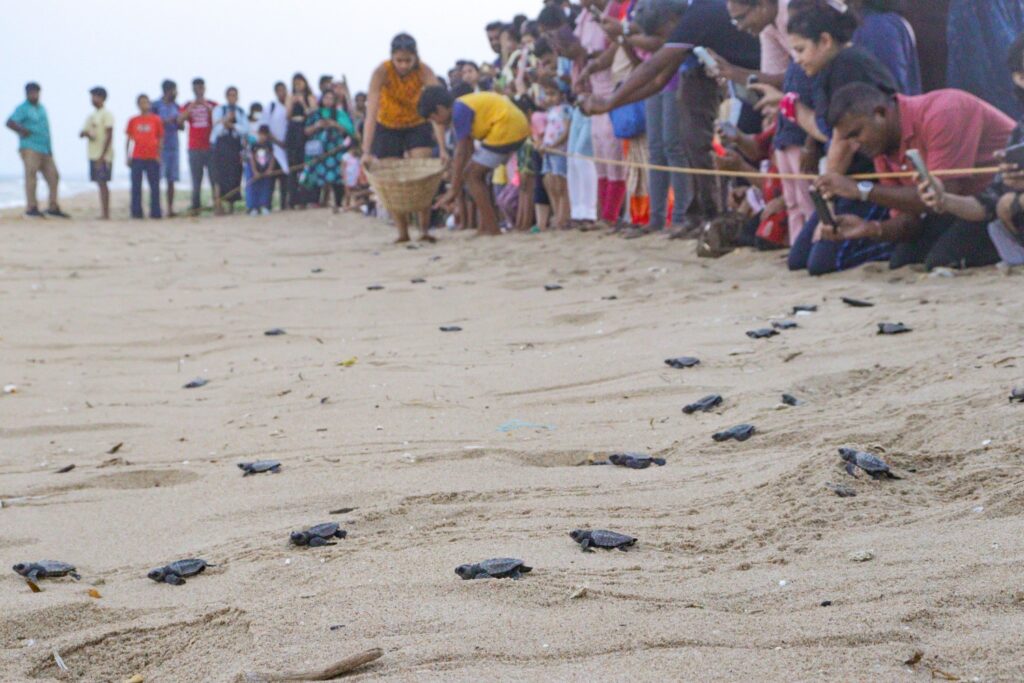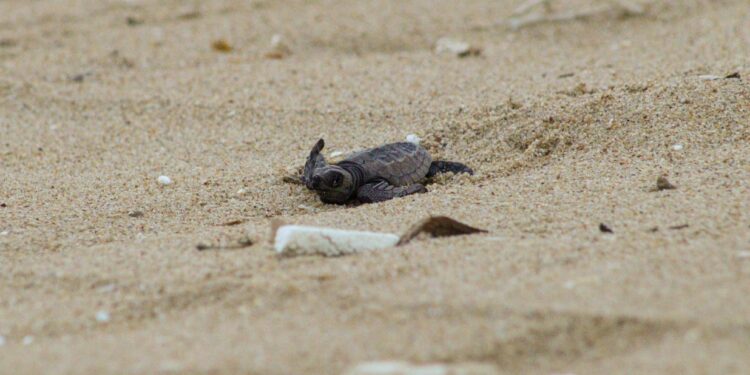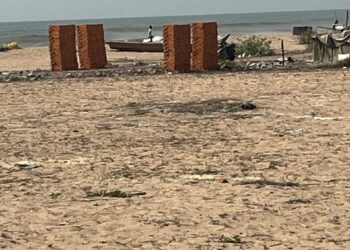Claps and cheers echoed as little Olive Ridley turtle hatchlings were released into the sea on Apr.8, at the Besant Nagar beach. The dark grey baby reptiles are not more than 5 cm and can fit into one’s palm.
A basket full of them was shown around to the waiting spectators on the beach before they were released into the wild – the sea. Excitement abounded as volunteers lined up the hatchlings one by one on the shore. The thrill was evident among the hatchlings as they scampered towards the expanse propelling their body with their flippers.

More than 15000 hatchlings have been released this season and more will be released by May mid. To this day, these endangered hatchlings call the hatchery their home, where they are guarded under the watchful eyes of the government forest department and the Students Sea Turtle Conservation Network (SSTCN).
Know more about Olive Ridley Turtles
The Olive Ridley gets its name from the olive green colour of its heart-shaped shell. The species is among the smallest of the world’s sea turtles and is found primarily in the tropical regions of the Pacific, Indian, and Atlantic oceans.
The Ridleys always return to the place of their birth to lay the eggs. They come ashore to lay eggs in the night to avoid predators and dehydration. They dig a deep pit – ‘nest’, and lay the eggs once they are comfortable with the temperature. The temperature in the nest determines the gender of the turtles – warmer temperatures (above 31C) result in females and cooler temperatures (below 27.7C) in males. There is rising concern that global warming will impact the sex ratio of turtles with more and more females being born and leaving very few males.
Ridley’s nest from Jan to March in Tamilnadu. Turtle walks are conducted during this season from the Neelankarai beach to Elliot’s beach wherein the eggs are collected, safeguarded at hatcheries and subsequently released after they hatch.
The number of Olive Ridleys has greatly reduced from historical estimates due to the overexploitation of turtle meat and eggs. Bycatch in fishing gear and the direct harvest of turtles and eggs are the biggest threats facing Olive Ridleys.
Organisations working towards their conservation in Chennai are the Students Sea Turtle Conservation Network (sstcn.org) and Tree Foundation (treefoundationindia.org).











